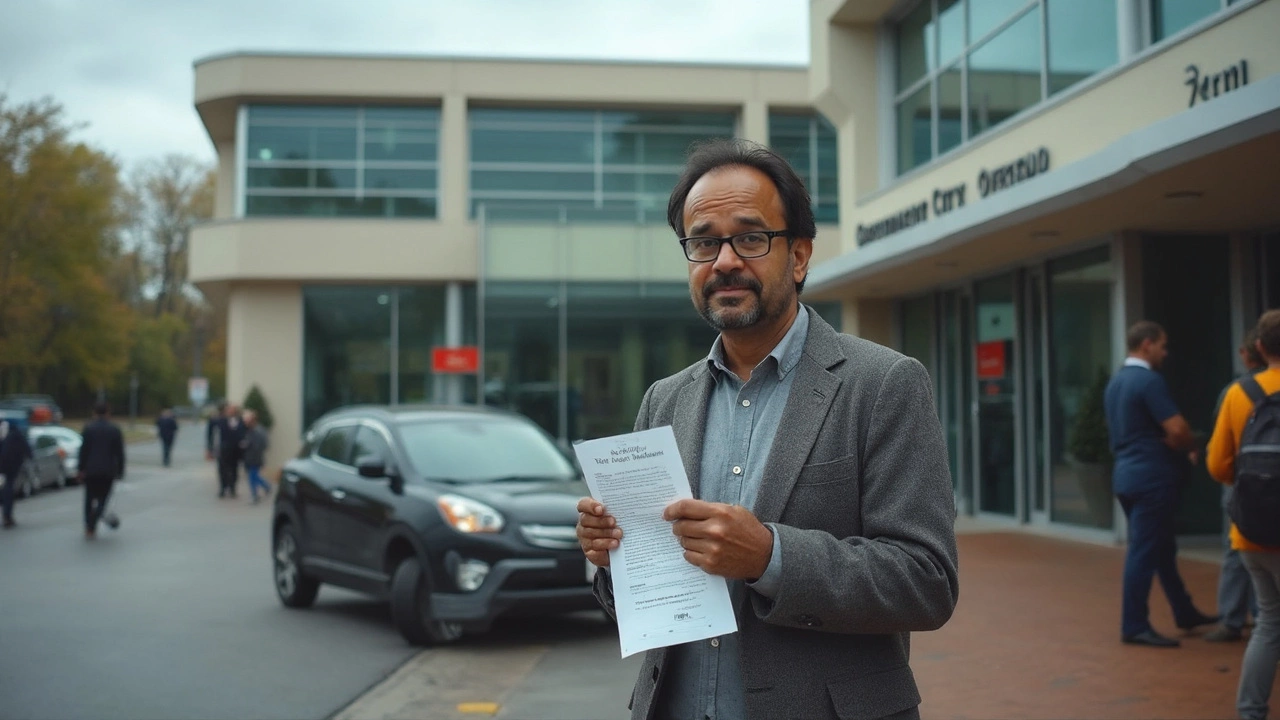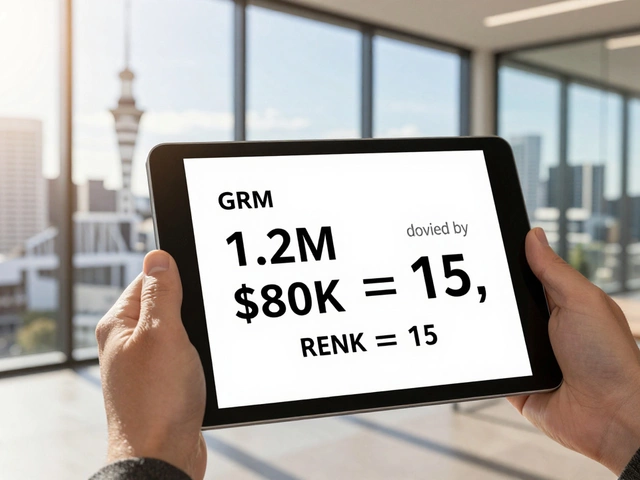Property Tax in Virginia: How Often Do You Have to Pay?

If you own a home in Virginia, get ready to pay property tax not once, but twice a year in most places. Some counties and cities might do it differently, but the classic setup is two installments: one in the spring or summer, and another in the fall. They don’t just slip by, either–local governments are serious about collecting on time since that money fuels schools, fire departments, and road repairs.
The exact due dates depend on where you live. For example, in Fairfax, you’ll usually pay in July and December. Head down to Virginia Beach, and you’re looking at June and December instead. So, don’t count on a single day for the whole state. It’s all about your specific city or county, and they all post the info online.
One quick tip: if you use a mortgage, your bank might handle your property tax through an escrow account. Sounds smooth, but it’s still on you to double-check nothing slips through the cracks. Think of it as insurance against a nasty late fee or–worse–an extra interest charge.
- How Property Tax Works in Virginia
- Payment Schedules by County and City
- What Happens If You Miss a Payment
- Tips for Managing Property Tax Bills
- Where Your Tax Dollars Go
How Property Tax Works in Virginia
Virginia property tax isn’t some random charge the government cooks up—it’s a local tax tied directly to the value of your real estate. Local assessors check out your property’s market value every year or so. What you pay depends on what your house, condo, or land is worth in the local market, not what you paid for it.
Each city or county in Virginia sets its own tax rate, which is usually written as a certain number of cents per $100 of assessed value. Here’s a simple breakdown:
- Your local government figures out what your property is worth (assessed value).
- They multiply that value by the local tax rate to get your annual bill.
For example, if your place is assessed at $400,000 and your county’s rate is $1.10 per $100, your yearly property tax would come out to $4,400.
Most people pay this bill in two chunks—half mid-year, half at the end of the year. Some areas break it into more small payments, but splitting it in two is by far the most common. The state government doesn’t actually collect the money—everything goes straight to your city or county.
If you bought your home with a mortgage, odds are your lender collects a little extra money from you each month. They stash it in something called an escrow account, then pay the bill for you when it’s due. But if you own your place outright (or your lender doesn’t collect escrow), it’s all on you to pay up by the exact local deadline.
Property tax in Virginia covers more than just houses. It hits land, mobile homes, rental houses, even the lot where you plan to build your dream cabin someday. It’s one of the main ways local governments pay for stuff you use every day—public schools, cops, roads, parks, and trash pickup.
Can you challenge your property tax bill if it feels too high? Absolutely. Every city and county has an appeals process if you think they flubbed your value. Just don’t wait till after the bill’s due—you’ll want to start right after you get your new assessment notice, before the next tax bill comes around.
Payment Schedules by County and City
There’s no one-size-fits-all rule for property tax payment dates in Virginia. Every county and independent city picks its own deadlines, so you can’t just follow your neighbor’s schedule across town. If you’re moving or about to buy property, it pays to look up your new locality’s setup.
| Location | Typical Due Dates | Number of Payments |
|---|---|---|
| Fairfax County | July 28 & December 5 | 2 |
| Arlington County | June 15 & October 5 | 2 |
| Richmond City | January 14 & June 14 | 2 |
| Virginia Beach | June 5 & December 5 | 2 |
| Loudoun County | May 5 & December 5 | 2 |
| Norfolk | June 5 & December 5 | 2 |
This table nails down some of the most common areas and their schedules, but some rural counties use just one annual payment. Others (like a few towns in rural Virginia) might let you split it into four.
The Virginia Department of Taxation reminds everyone,
"Cities and counties set their own due dates, so make sure you check with the local treasurer’s office for payment instructions."
You can always find your bill online these days, but that won’t save you if you overlook an email or letter. Here’s what works for most people:
- Add your local payment dates to your calendar (seriously, set an alert).
- Sign up for email or text reminders with your city/county website.
- If your mortgage pays escrow, double-check every year that the right amount is paid and up to date.
One last thing: some areas let you set up automatic payments. If your budget can handle it, this cuts the risk of a forgotten deadline—and it spares you the late fee, which in some places can be 10% or more.

What Happens If You Miss a Payment
Missing a property tax bill in Virginia isn’t just a small oops—it comes with quick consequences. As soon as the due date passes, you’ll usually get hit with a late penalty. Most counties and cities tack on a penalty right away, often around 10% of your unpaid amount. If you still don’t pay after the penalty, the city or county will add interest too—usually about 10% a year, but some places may use a slightly different rate. That extra money stacks up pretty fast the longer you wait.
If you’re still hoping for a grace period, don’t count on anything big. Some local governments might give you a cushion of a couple days, but most start those penalties the next business day after the due date. No reminders, no second chances—just straight to those extra charges.
Keep missing payments, and things can get serious. After a few years, the government can actually move to sell your property at auction to cover the unpaid tax. This isn’t instant, but ignoring the bills long term is risky business. They’ll also add court and legal fees to your total tab. If your mortgage company pays property taxes from escrow, missing a bill can also mess with your mortgage status or your credit.
- Late penalties: about 10% of what you owe, added right after the deadline.
- Interest: usually 10% per year on your outstanding balance.
- Risk losing your home if taxes stay unpaid for multiple years.
- Extra fees if things move to court, plus damage to your credit record.
The best way to dodge these headaches? Mark your calendar with every due date—and if you move, double check your new local schedule. Staying ahead means you avoid those costly surprises and keep your property tax bill under control.
Tips for Managing Property Tax Bills
Keeping up with your property tax in Virginia isn’t rocket science, but it does take some planning. Counties and cities don’t budge on deadlines, so being proactive can save you a headache down the road.
- Know your due dates. Every city or county sets its own calendar. Fairfax hits you in July and December, Richmond splits them up in January and June, and Virginia Beach mails bills for June and December. Find your local schedule online or call the treasurer’s office, then mark those dates on your phone calendar.
- Sign up for alerts if your county offers them. Some counties email you reminders so you never miss a bill. Simple and free.
- Plan for escrow if you have a mortgage. Most lenders collect your property tax through monthly mortgage payments and pay the bill for you. Still, check your annual escrow statement to see what's getting paid and when. Lenders can make mistakes, and it’s your home on the line.
- Set aside money monthly if you pay the tax directly. Split the estimated yearly bill by 12 and put that aside each month—think of it as a do-it-yourself escrow. This way the big bill won’t blindside you twice a year.
- Check if you qualify for tax relief. Some Virginia counties offer reductions or deferrals for seniors, people with disabilities, or veterans. Fairfax, for example, has an income-based exemption that can knock down your bill if you’re over 65 and meet the limits. It’s worth a call or quick online search in your town.
- Don’t ignore your assessment. If your property value shoots up on paper and you think it’s too high, you can appeal with the assessor’s office. Sometimes that can lower your tax bill, especially if recent sales in your neighborhood don’t match the county’s number.
Here’s a quick look at a few sample tax due dates across Virginia in a handy table:
| Locality | Bill Due Dates |
|---|---|
| Fairfax County | July 28 & December 5 |
| Virginia Beach | June 5 & December 5 |
| Richmond City | January 14 & June 14 |
| Norfolk | June 5 & December 5 |
If you mess up and pay late, most counties tack on a 10% penalty, and sometimes interest starts adding up after that. Stay on top of things and you’ll never see those extra charges.

Where Your Tax Dollars Go
Ever wonder what your hard-earned property tax in Virginia actually pays for? Once you see the breakdown, it’s easier to understand why the local government pushes so hard to collect on time. They use that money right in your own community.
The biggest chunk of your local property tax bill goes straight to public education. In most counties, schools eat up more than half of every tax dollar. Think teacher salaries, school buses, and classrooms that aren’t falling apart. Next, you’re chipping in for emergency services. Firefighters, police, and EMS don’t run on empty, and that steady income keeps neighborhoods safer all year.
But it doesn’t stop there. Here’s a quick peek at how a typical Virginia city or county might spend every property tax dollar:
- Property tax (main revenue): Funds K-12 public schools, often about 50-55% of the budget.
- Police, fire, and rescue: About 14-18% for first responders and public safety.
- Roads and public works: Repairs, snow removal, and traffic control.
- Libraries and parks: Your local leisure spots and learning hubs.
- General county/city operations: From trash pickup to voting machines.
Here’s a basic example from Fairfax County’s actual 2024 adopted budget ($4.91 billion total):
| Category | Percent of Budget |
|---|---|
| Public Schools | 52% |
| Public Safety | 13% |
| Human Services | 11% |
| Parks, Libraries, & Culture | 5% |
| Public Works | 6% |
| Other Government Services | 13% |
If you get frustrated paying your property tax bill, just remember–unlike income taxes that fly off to Washington, most of your money stays where you live. Check your own city or county’s budget online if you’re curious where each penny goes. And if you care about how it’s spent, show up at a budget meeting. Your feedback actually matters on the local level.




